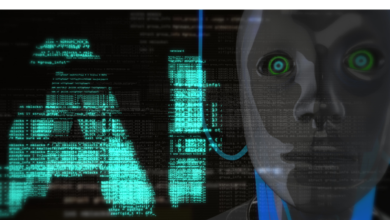Bitcoin Technology Innovations
Bitcoin has attracted a legion of developers to swiftly and organically improve and upgrade a lot of the code base for thousands of hours. In addition, there are several laws defining bitcoin’s monetary policy, such as hardcoded supply and algorithmic inflation. Groups were trying to change these basic assets over and again, but all aggressive acquisitions failed. For more information, visit the Crypto Code App.
Accurate Public Ledger
Perhaps the blockchain isn’t so revolutionary – it’s not electric automobiles or reusable missiles. Just imagine if you had to develop a public directory. How would you build a booklet that everybody can use? Thus, the people who transact to the book only use it – the general public. What do you do so that people don’t give themselves money inexorably, infinitely? You can’t confide that people don’t abuse it.
Digital Shortage
The second question is impossible: how are you making digital, something you cannot copy? How can you build a 1000 times non-downloadable file? Who’s the original work even? I’m sure you could conceive of some highly valuable application of such technology straight off the top of the head if there were only a means to build something digital that cannot be copied. You won’t be surprised to hear that encryption is the answer to this previously insoluble challenge.
Decentralization
All the parallels exist between the euro, the dollar, lira, ruble, and yuan. It is regulated by a central agency that gives new money as it sees fit and also (tries to) prevent falsifications. On the other hand, Bitcoin has no central authority, and nobody issues it – it is mined, as per the coding method, for the following reasons. However, what if there is a problem and the code has to be changed?
The people on the network must agree to implement this to modify the current Bitcoin code. These new changes are then added to the permanent record and encrypted. Take an update that seeks to boost the bitcoin supply and produce 1000 bitcoin from nothing. In contrast to a central currency, nobody can decide “I will print,” even though people who have some money already don’t wish to print more. A consensus on the update needs to be established so that people can accept your suggestion. This appeals to people that don’t want a bank or central entity that does not trust that their currency will not be depleted or inflated. With Bitcoin, it is possible to impress additional Bitcoin as a central currency – but it should all be agreed upon, and hence the value of their holdings decline considerably.
Smart Agreements
Several projects aim to return expressive smart contract functionality to Bitcoin securely and responsibly. This is a major milestone as several original Bitcoin opcodes were removed from the 2010 Protocol. After many horrendous faults in Satoshi’s programming language, Script, this happened, deactivating some of its functionalities.
Over the year, the highly expressionistic intelligent contractual functionality has been accompanied by non-trivial security threats. The general rule is that the more functions are implemented on the virtual machine (the opcode processing joint control mechanism), the more volatile the programs are.
Payment Adoption
The first real-life transaction was utilized as a pizza payment in 2010 by BTC. Several companies have recently reported support for the goods and services of BTC in return. It is now possible to buy, sell and save BTC and Bitcoin Cash (previous altcoin) on their accounts. PayPal will certainly pave the road for more people to trust and use cryptocurrency as a top Fintech company.
Transition to a Safe Haven
Many individuals start to see BTC as a legitimate medium of trade. Numerous programs for secure storage of this coin and digital wallets have now been established. Although BTC’s prices were relatively erratic since last year, they have steadied slightly. In addition, this digital asset should become more desirable and lucrative in the future as BTC grows.
Privacy
This idea may contradict the long-term privacy assessment proposal, although numerous additional protocols can still enhance Bitcoin privacy.
Since most solutions are semi-finished, before we look at specific improvements in privacy, it is vital to stress. The privacy of transaction diagrams often ignores the privacy of the network and vice versa.
Private Clusters
Private keys are pieces of data used for the signing of monetary transactions between users. It also offers signatures to guarantee the protection of transactions and to prevent alteration after processing the transaction.
Mining
Certain interesting advances have been made in mining protocols, particularly for those employed by members of the mining pool. Although centralization of Bitcoin mining is often overridden wildly, mining pond operators can, in fact, significantly decentralize power structures. Pool administrators will decide what transactions can undermine and give them considerable influence over all pool elements.
Unless the component was approved, some operators have used the power over time by suppressing trading, emptying mining blocks, and transferring hatching output to other networks. Luckily some inventions demand the power system be reversed. Stratum V2 also offers several optimizations and robust communication and coordination between the mining pool components.
Conclusion
Bitcoin’s utility as a payment system is becoming increasingly obvious. The current trend has been for BTC to be maximized as long-term value storage and seen as a trading medium and an investment.








